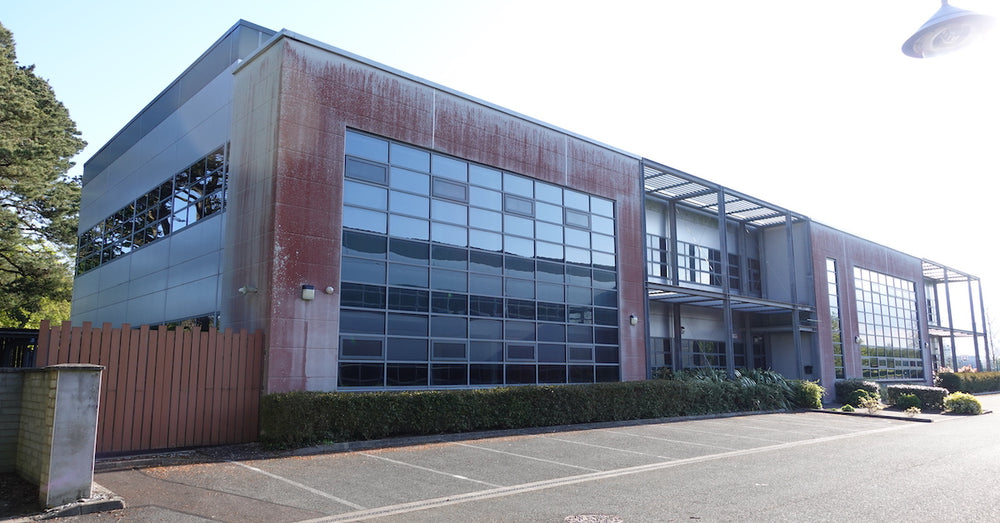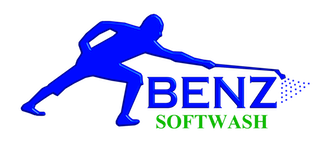
A knowledge of plant micro-biology – growths that give a property the "dirty" appearance and which soft washing treats and removes –will give your customers confidence in your services and encourage them give you valuable referrals.
So in this Trade Tips post we share some basic plant biology with you, specifically about growths that colonise the external surfaces of properties, which your customers want removed.
Algae feed on mineral salts require light to grow. They appear as green, red or brown areas consisting of powdery deposits or filaments that may turn to slime under wet conditions. They are found on all types of substrates and are especially abundant in warm, damp conditions (as we are increasingly experiencing during our winters).
Lichens (pronounced "litchens" in British English and "likens" in US English) feed on mineral salts and require light to grow. They may consist of leathery incrustations on the surface or may be more deeply rooted, which is what makes them so challenging to remove. They can be white, orange, green, grey or black. Found on all types of surfaces including concrete paving slabs, and especially soft sandstone, they are often called "black (or white) spot".
Moss feeds on mineral salts and requires light to grow. The biofilm of algae, lichen, fungus and mould hold moisture and make the perfect environment for the moss to grow and reproduce. It typically consist of a green cushion of spiky tufts but may also be low and spreading. Moss is usually brown when dry. Moss is found on surfaces where salts, soil and dirt have accumulated and commonly occurs on roofing materials.
When treating surfaces we do not target the mosses, which are classified as a plant, but the biofilm which allows the moss to grow and reproduce. The moss is removed by manually scraping or other mechanical means, e.g. pressure washing prior to treatment.
Liverworts feed on mineral salts and require light to grow. They are typically leafy, close growing, green coloured plants but some occur as a leathery tissue and may resemble lichens. They are usually found on surfaces where soil and dirt have accumulated and commonly occur on stone walls.
Moulds (molds) live off organic material and do not need light to grow. They appear as spots or patches which may spread to form a furry layer on the surface that can be grey, green, brown, white or black. They may grow within or behind paint causing a stain, usually pink or purple, but the mould itself may not be visible. Flaking can occur.
They are commonly found on painted surfaces and on surfaces where dirt and dust accumulates. They also occur on and under wood stains, glazing, putty, building sealants and plastics.
Bacteria live off various food sources, do not need light to grow, and are not visible to the naked eye. They are capable of causing discolouration, and some bacteria cause deterioration of stone and corrosion of metals.
We hope this information is helpful and sincerely wish you great success in your soft washing business,
Team Benz
Click here to get more practical soft washing how-to tips
How to find answers to most soft washing questions: Simply enter a relevant "keyword" or short phrase – e.g. keyword for the above link = "how to" – into our in-site Search Engine (magnifying glass icon on the main menu).
Click here to download our Product Documentation Pack (includes Application & Dilution guides, SDS, PDS, RAMS, PPE & Mask info, COSSH, sample Contract and more)
Order Benz Softwash chemicals & equipment online or by phone:
GB (England, Scotland, Wales)
Phone: 0800 70 74 222
Online: www.benzsoftwash.co.uk
Ireland and other countries
Phone: 00353 214 622 978
Online: www.benzsoftwash.com
Lines open Monday - Friday, 9am – 5pm
The above numbers are for orders only (click here for tech support)
PS: Click here to set up your "Clean & Maintain" programme. After completing an initial soft wash treatment, put your customer on a "Clean & Maintain" ongoing maintenance programme. Your customers will enjoy a permanently clean property and you will enjoy a steady stream of repeat business.
This is clearly a win-win arrangement for you and your customers.
Click here to explore the extensive range of Benz softwash cleaning chemicals & equipment
The legal situation around using DDAC biocide to kill and control moss:
For many years the active ingredient in Benz Bio Cleanze (DDAC) has been used to kill and control moss.
But as from June 2015, the politicians and bureaucrats have decreed that moss is to be considered a “plant” and therefore comes under a different set of labelling regulations.
As such the law now states that only manufacturers of expensive "herbicides" (aka “weedkillers”), which are often quite unhealthy for humans and for our environment, can claim to kill and control moss.
From June 2015 no biocide manufacturer can legally state that a biocide kills and controls moss, even though it was used to kill and control moss for many years.
Click here to read a fuller explanation of the current legislative situation



Leave a comment